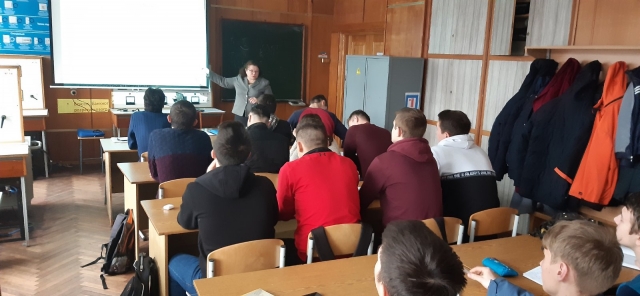Відбулася відкрита лекція з дисципліни «Економічна теорія» д.е.н., доцента кафедри економічної теорії Бутенко В.М.
02 березня 2020 р. відбулася відкрита лекція з дисципліни «Економічна теорія» д.е.н., доцента кафедри економічної теорії Бутенко В.М. Лекція проводилася для студентів 2 курсу ННІ енергетики, автоматики і енергозбереження спеціальності «Автоматизація та комп’ютерно-інтегровані технології». Тема лекції «Гроші в системі товарних відносин». Лекцію відвідали завідувач кафедри економічної теорії д.е.н., професор Талавиря М.П., д.е.н., професор кафедри економічної теорії Байдала В.В., к.е.н., доцент кафедри економічної теорії Болгарова Н.К., к.е.н., доцент кафедри економічної теорії Гуща І.О., к.е.н., асистент кафедри маркетингу та міжнародної торгівлі, заступник декана факультету аграрного маркетингу Карпенко Л.Ф. За результатами проведеної лекції відбулося обговорення на кафедрі економічної теорії. Визначено, що лекція проведена на високому навчально-методичному рівні.



